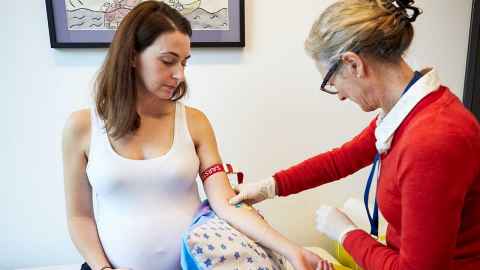Clinical research
Our bright and child friendly Clinical Research Unit is fully equipped for a wide range of clinical studies, including detailed metabolic, obesity and nutritional assessments, and neurocognitive testing in children and adults.

Overview
The Clinical Research Unit (CRU) is a key service offered by the Liggins Institute-hosted Human Health Research Services Platform. The CRU provides support for clinical research studies through services such as phlebotomy for blood sample collection, nursing support for assessments, and DEXA scanning for bone density and body composition measurements.
To find out more about the services available, visit the Clinical Research Unit services page.
Using the facilities
If you’re interested in using the Clinical Research Unit for research, please contact humanhealth@auckland.ac.nz